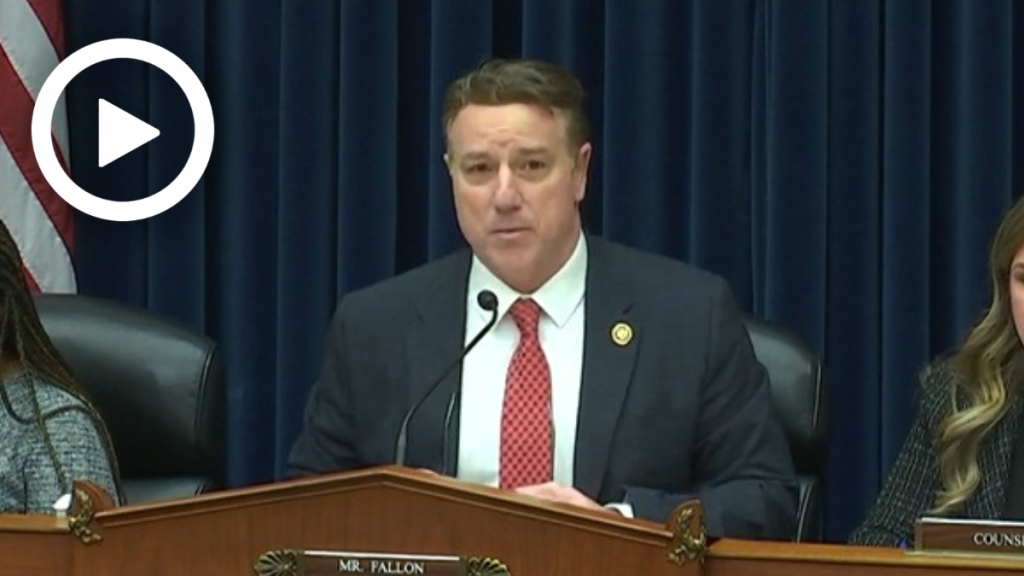Fallon: America’s Power Grid is Unprepared to Handle New Biden Administration Regulations
WASHINGTON—Subcommittee on Economic Growth, Energy Policy, and Regulatory Affairs Chairman Pat Fallon (R-Texas.) today opened a hearing titled “The Power Struggle: Examining the Reliability and Security of America’s Electrical Grid” by discussing the threats facing America’s power grid security and reliability. Subcommittee Chairman Fallon warned that the power grid is unprepared to handle new regulations proposed under the Biden Administration.
Below are Subcommittee Chairman Fallon’s remarks as prepared for delivery.
Today’s hearing focuses on an issue that is critical to all Americans—the reliability and security of our nation’s power grid.
When you flip on a light switch, plug in your phone charger, or put groceries into your refrigerator, you expect electricity will be flowing.
An elaborate network of power plants, transmission lines, and distribution nodes work every day to deliver electricity where and when it is needed.
However, as the demands grow, so too do the risks for that reliability to fail.
In 2023, the North American Electric Reliability Corporation, or NERC, which serves as the watchdog for grid reliability released its Long-Term Reliability Assessment.
That assessment warned regulators and utilities that more reliable capacity was needed to mitigate the challenges presented by growing electricity demand.
That is why it is urgently important for Congress to engage in serious conversations to identify the risks to this reliability and safeguard our grid against threats.
Many of these threats don’t come from within the network. So where do they come from?
Weather, of course, poses a significant risk to the grid.
We’ve also seen foreign adversaries, or entities sponsored by them, use cyber-attacks to try to cripple the grid.
But many of the risks are caused by the federal government.
New regulations proposed under this Administration will strain the system and the grid is unprepared to handle it.
Regulations—including attempts to force car companies to only manufacture electric vehicles—creating significant new demand on the grid.
Regulations attempting to get rid of all fossil-fuel power plants, despite their necessity in providing consistent power generation.
Regulations forcing more electric appliances onto the market despite the fact that under the new standards, many of them don’t work.
Not to mention, this Administration’s radical push for renewables while ignoring the need for power generation around the clock—not just when the sun is shining and the wind is blowing.
What is the cumulative impact of all these regulations? Is our existing grid system even remotely prepared to deliver the volume of electricity these “rush-to-green” policies require?
What do we do to ensure the American people have the reliable and affordable power they need?
That’s what we are here to find out.
The Federal Energy Regulatory Commission, or FERC, oversees our nation’s “bulk power system,” including the generation, transmission, and distribution of power needed to maintain grid reliability.
We offered FERC the opportunity to appear at today’s hearing. Unfortunately, FERC declined to participate.
Luckily, we have the next best thing, in former Commissioner James Danly, who can speak to the inner workings of FERC and how they should respond to these challenges.
We will also hear from Mr. Travis Fisher, an expert with significant experience at FERC and in the private sector.
I hope our conversation here today will be an insightful look into how we can better prepare for the challenges ahead and what Congress should consider when debating issues impacting the security of our power grid.
I thank each of the witnesses for being here today, and with that I yield to Ranking Member Bush for her opening statement.
